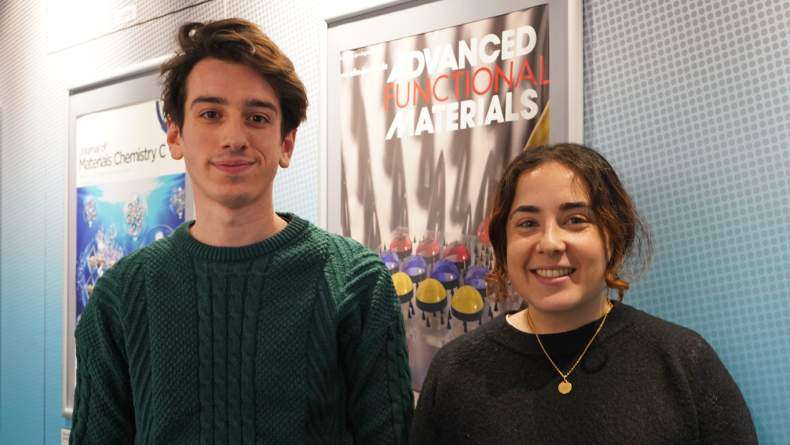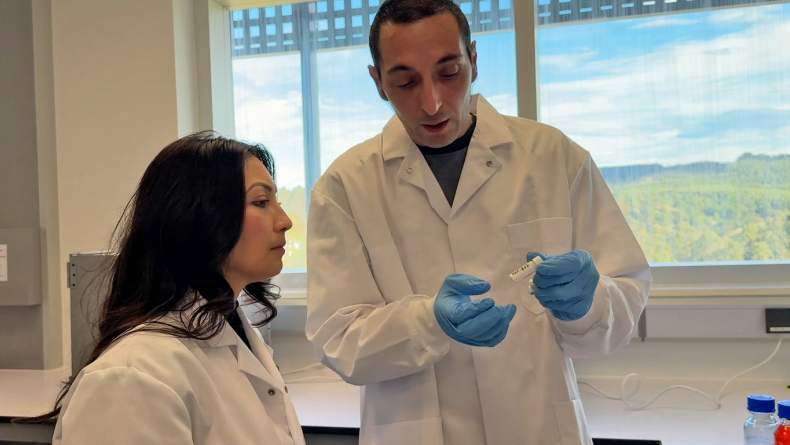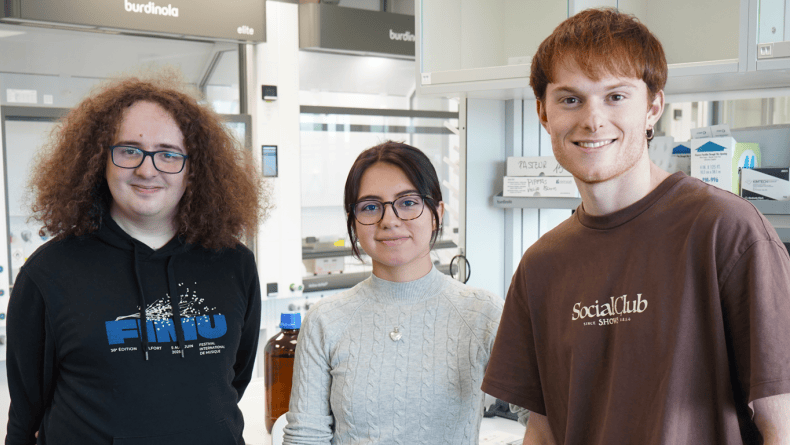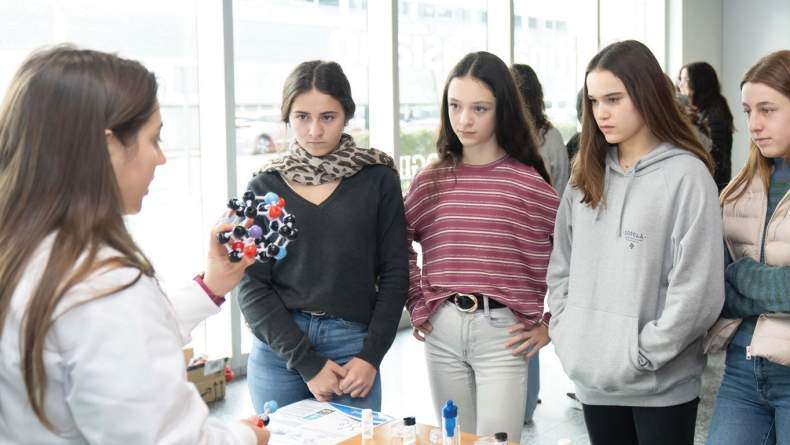BCMaterials collaborates developing low-cost, open-source 3D printer with MEW technology
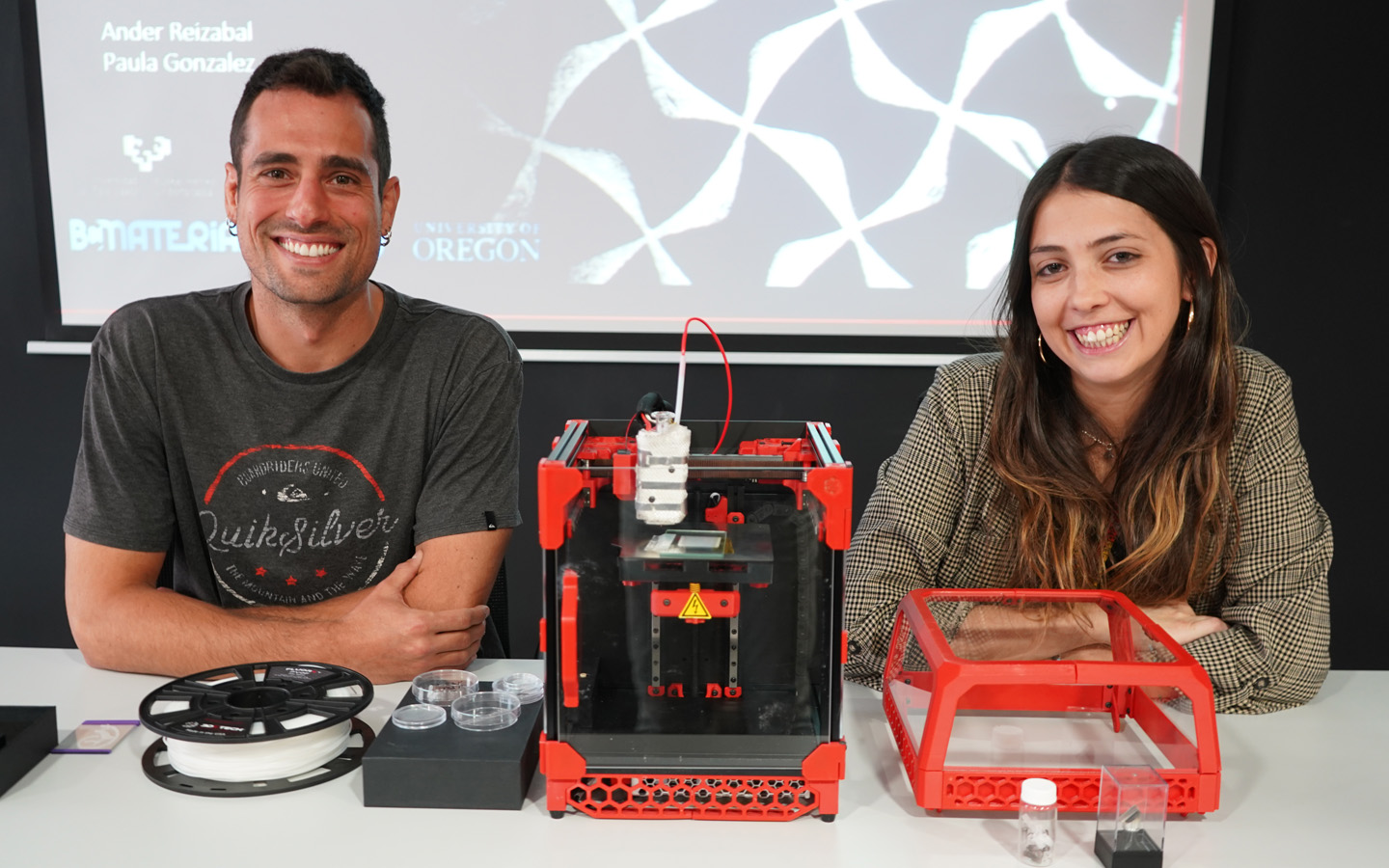
Researchers from BCMaterials and the University of the Basque Country (UPV/EHU) collaborated with the University of Oregon and the EPFL School of Engineering in the successful transformation of a 3D printer into a low-cost, high-tech Melt Electrowriting (MEW) open source device. This new equipment, called MEWron, makes printing at high-resolutions much more affordable and customizable.
MEW technology enables the printing of porous structures, or scaffolds, through the controlled deposition of electrically charged polymer fibers. Its ability to mimic natural tissues allows applications in tissue engineering, cancer research, and biomaterials development. Furthermore, it is possible to work with different materials and produce porous structures with a large surface area, so it shows great potential in the development of active and functional devices.
Until now, however, the high cost of printers and the limited customization of commercial equipment slowed down the development of research on this technology. An inexpensive MEW printer can cost about 20,000 euros and a high-end one, close to 80,000. However, the MEWron equipment developed in the scope of this collaboration costs less than 3,000 euros, as it is based on the open source Voron 3D printer.
How did they do it?
The team, coordinated by Professor Paul Dalton of the Dalton Lab, University of Oregon Knight Campus, decided to convert a low-cost yet powerful 3D printer, the Voron O.1, into a versatile MEW device. “To make the conversion, two methods were used. Both are the proof of the potential of the printer. On the one hand, it uses an air pressure injection system and a syringe to store the polymers, while the other uses the original feeding system based on filaments”, explains Ander Reizabal, a BCMaterials researcher, who participated in the development of the printer during their stays at the University of Oregon, along with the UPV/EHU researcher Paula González-Saiz,
“The syringe configuration offers an inexpensive and customizable platform for creating high-resolution structures, while the filament-based approach allows for precise control of flow and the ability to match fiber diameters to produce complex structures. This approach also makes it possible to print materials with new properties, which opens up new opportunities for the development of innovative materials”, adds González-Saiz.
A big push for research
The researchers see turning a commercial 3D printer into an open source, adaptable MEW device an essential step in making advanced materials research accessible to a broader audience. Its goal is to foster collaboration, accelerate research, and unlock new possibilities in fields such as biomedicine, electronics, and environmental remediation.
Inspired by the open source approach commonly followed by the Voron community, the project aims to establish a diverse community dedicated to MEW technology, driving modifications, enhancements, and new scientific advances. The authors envision a future in which data sharing fosters collaboration and leads to transformative advances in science and technology, ultimately improving the quality of life for society.
There are currently four converted printers available on the EPFL campus, two at BC Materials and seven at the UO campus.
Detailed instructions on the printer and its construction are available in a recently published open access article.
Related news
Sara Martín and Stefano Lunghi Join BCMaterials as New Researchers
BCMaterials is pleased to welcome two new members to its research team: Sara Martín Iglesias, a postdoctoral researcher in the Active and Smart Materials research line, and Stefano Lunghi, a…Nanomaterials for Water Remediation and Valorization
Scientific staff at BCMaterials are developing next-generation nanomaterials combined with naturally sourced polymer membranes for water decontamination and reuse. These advanced materials not only…Three New Resarchers Join BCMaterials
The new year has brought BCMaterials the arrival of three new young scientists to our staff. They are the pre-doctoral researchers Karen Cano and Mikel Russo, along with the post-doctoral researcher…BCMaterials Activities at Emakumeak Zientzian (Women in Science)
This year marks the 10th anniversary of the Emakumeak Zientzian (Women in Science) initiative, which brings together more than 30 Basque organizations (universities, research centers, companies…) to…
